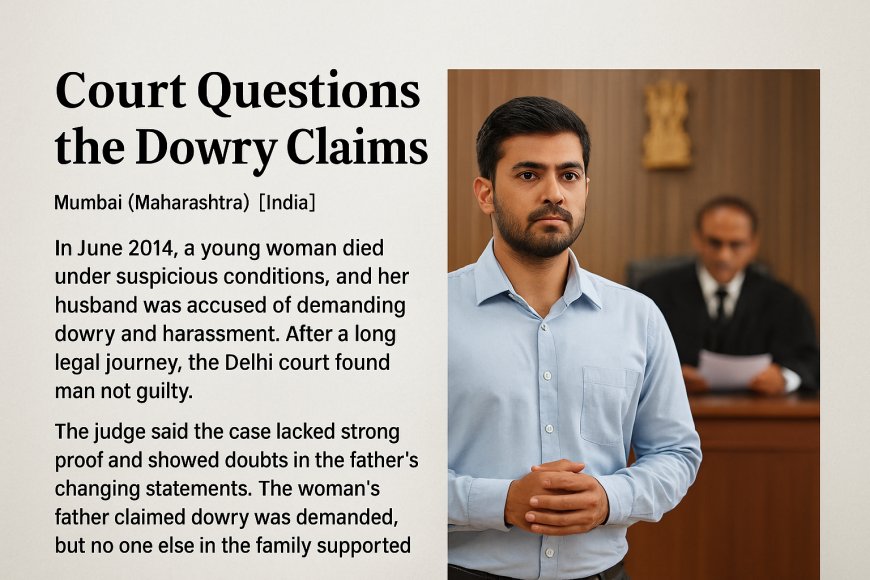Delhi Court Clears Man in Dowry Death Case After 10 Years
The Delhi court gives its final verdict in a 2014 dowry death case, raising questions on the strength of evidence and changing narratives

Mumbai (Maharashtra) [India] April 07: In June 2014, a young woman died under suspicious conditions, and her husband was accused of demanding dowry and harassment. After a long legal journey, the Delhi court found the man not guilty. The judge said the case lacked strong proof and showed doubts in the father’s changing statements. The woman's father claimed dowry was demanded, but no one else in the family supported this. The court felt this was not normal behaviour if the daughter was truly facing such stress.
Court Questions the Dowry Claims
The court found it strange that there were no dowry demands before or soon after the marriage. The girl had returned to her parents’ house six months after marriage and stayed there for five more months. During this time, no complaints were made about any mistreatment. So, the court said it was odd that such big claims came much later. The judge added that such things would usually be shared with other close relatives too, but no one else confirmed these stories.
Evidence Not Matching the Allegations
While the case was strong on paper, the court pointed out that the main evidence was not supported by other people. The woman’s relatives said they “heard” about the cruelty, but they had not seen or experienced anything themselves. The judge said that in such sensitive matters, clear and believable proof is needed. The evidence given was not solid enough to blame someone for such a serious crime, especially when many parts of the story kept changing.
Doubt Raised by the Chargesheet
The police report also mentioned that the couple’s problems were due to the husband’s unemployment. The woman’s stay in her matrimonial home was very short, and there were no strong complaints during that time. The court said it was hard to believe that the family treated her badly during those few days. The judge reminded that marriage problems are common, but not every fight can be called cruelty or dowry harassment unless proved clearly with facts.
Final Words from the Court
Even though the woman’s death was very tragic and happened within seven years of marriage, the court said it could not punish someone without strong proof. The husband was charged under Section 304B (dowry death) and 498A (cruelty) of the IPC, but the court ruled he was not guilty. The judge said justice means protecting both sides, and without firm evidence, the court cannot declare someone a criminal. It took ten years, but finally, the man walks free with the court’s clean chit.

 Aryan K
Aryan K 





